As the world embraces the urgency of sustainable living, Melbourne stands at the forefront of eco-conscious initiatives, including the rise of low-waste kitchen in Melbourne. Reducing waste in the kitchen not only contributes to a healthier planet but also fosters a mindful and sustainable approach to daily living.
Explore local farmers’ markets and bulk stores to access fresh, packaging-free produce while supporting the community. Opt for reusable, eco-friendly kitchenware like stainless steel straws and glass containers to minimize environmental impact.
Practice mindful meal planning to reduce food waste, saving both time and money. Set up efficient composting and recycling systems to divert kitchen waste from landfills and create nutrient-rich soil. Join Community Supported Agriculture programs for a direct supply of seasonal, organic produce with a “zero waste kitchen” option.
In this guide, we’ll explore tips on how to find and create a low-waste kitchen in Melbourne, where eco-friendly practices and culinary excellence converge.
Key Points:
- Explore local farmers’ markets and bulk stores for packaging-free produce and community support.
- Opt for reusable kitchenware like stainless steel straws and glass containers to minimize environmental impact.
- Practice mindful meal planning to reduce food waste and save time and money.
- Set up efficient composting and recycling systems to divert kitchen waste from landfills.
- Join Community Supported Agriculture programs for a direct supply of seasonal, organic produce.
- Use DIY cleaning products to reduce reliance on conventional cleaning products in plastic packaging.
- Adopt zero-waste cooking techniques to creatively utilize all parts of ingredients.
- Stay informed and engage with Melbourne’s sustainability community for ongoing learning and support.
Eight Practices for Low-Waste Kitchen in Melbourne

Embracing low-waste living not only benefits the environment but also supports the local community. The following eight practices will help you make your kitchen a sustainable hub.
1. Local Farmers’ Markets and Bulk Stores
Melbourne boasts a thriving network of farmers’ markets and bulk food stores, providing access to fresh, local produce without the excess packaging. By sourcing ingredients from these markets, you not only support local farmers but also significantly reduce your kitchen’s carbon footprint.
2. Reusable and Eco-Friendly Kitchenware
Transitioning to reusable and eco-friendly kitchenware is a pivotal step in creating a low-waste kitchen. Invest in quality, long-lasting items such as stainless steel straws, glass containers, and beeswax wraps. Opt for products made from sustainable materials to minimize environmental impact.
3. Mindful Meal Planning
Using a personal chef’s meal planning for mindful and healthy living can reduce food waste. Plan your meals for the week, create shopping lists based on actual needs, and repurpose leftovers creatively. This not only minimizes waste but also saves time and money.
4. Composting and Recycling Systems
Establishing an efficient composting and recycling system is essential for diverting kitchen waste from landfills. Melbourne has a robust waste management infrastructure, and many local councils provide resources and guidance on composting and recycling. Composting not only reduces waste but also produces nutrient-rich soil for your garden.
5. Community Supported Agriculture (CSA) Programs
Joining a Community Supported Agriculture program connects you directly with local farmers, providing you with a steady supply of seasonal, organic produce. Many CSAs offer a “zero waste kitchen” option, allowing you to return packaging for reuse.
6. DIY Cleaning Products
Conventional solid dish soap cleaning products often come in single-use plastic packaging. Use vinegar, baking soda, and essential oils to make your own low-waste cleaning products. Reusable cleaning cloths further reduce the need for disposable alternatives.
7. Zero-Waste Cooking Techniques
Adopt cooking techniques that minimize waste, such as using vegetable peels and food scraps to make broths, preserving excess produce through pickling or fermenting, and creatively using every part of an ingredient. Try to be a zero waste chef, this not only reduces waste but enhances the depth of flavors in your dishes.
8. Stay Informed and Engage with the Community
Melbourne’s sustainability community is vibrant and supportive. Stay informed about local initiatives, workshops, and events focusing on low-waste living. Engage with like-minded individuals and organizations to share tips, learn new practices, and contribute to the city’s collective efforts toward sustainability.
What Are 10 Sustainable Food Practices?
Embrace a plant-based diet (reduce meat consumption), minimize ultra-processed foods, choose seafood responsibly, support local producers, opt for in-season produce, buy in bulk, cut down on food waste, practice the principles of reduce, reuse, repurpose, prepare homemade meals, and engage in composting.
What Are Sustainable Menus?
Sustainable food is safe, healthy, and produced without hazardous pesticides, harmful chemicals, non-essential antibiotics, or growth promotion supplements. It increasingly considers nutritional aspects and aligns with a growing trend towards plant-based diets.
Who Is Responsible for Menu Planning?

Menu planning falls under the purview of the sous chef, the second-highest-ranking chef in the kitchen. They assist the executive chef in overseeing kitchen operations, managing staff, monitoring inventory, and planning menus to ensure the kitchen’s efficiency and profitability.
What Are the 5 Basic Steps of Meal Planning?
- Determine your meal planning goal.
- Calculate your daily energy needs.
- Divide daily energy (caloric) needs into meals and snacks.
- Create a written plan for your meals over the week or upcoming days.
- Complete your meal planning by going food shopping based on your devised plan.
What Is the 5 5 5 Meal Plan?
Unlike the 5:2 diet, which involves intermittent fasting, the 5:5:5 diet focuses on consuming five small meals daily. This approach prioritizes consistent, balanced eating throughout each day rather than intermittent fasting periods.
Conclusion
Creating a low-waste kitchen in Melbourne is a journey that intertwines mindful living with culinary excellence. By embracing local, eco-friendly practices, supporting sustainable initiatives, and fostering a sense of community, you can transform your kitchen into a haven of conscientious consumption.
Melbourne’s rich tapestry of sustainable resources awaits, offering a palette of possibilities for those who seek to harmonize their culinary pursuits with the well-being of the planet.



